Dodge Hornet R/T Luggage Test: How much cargo space?

The Dodge Hornet is priced and marketed as a compact SUV. In terms of dimensions, um, no. Outside, it’s 2 inches shorter in length than one of the smallest compact SUVs, the Mazda CX-5, and nearly 7 inches shorter than a Honda CR-V. It’s more like a large subcompact such as the new Honda HR-V.
Interior space is even less indicative of the CX-5 and CR-V. Rear seat legroom is squished, and more to the point of this test, cargo space is limited. Now, there is a difference in cargo space depending on the model. The turbocharged GT has 27 cubic-feet of cargo space, whereas the R/T plug-in hybrid has 22.9. I’m guessing the difference comes from including underfloor storage. The GT figure would indeed be less than every compact SUV I’ve luggage tested, while the R/T figure puts it right in the middle of the subcompact group.
This test will only cover the R/T since that’s the test vehicle I had. Let’s see how much actual stuff fits back there and how it really compares to other small SUVs.
Just by looking at this, it should be obvious that the Hornet’s cargo area is pretty hatchbacky, right down to the rigid cargo cover.
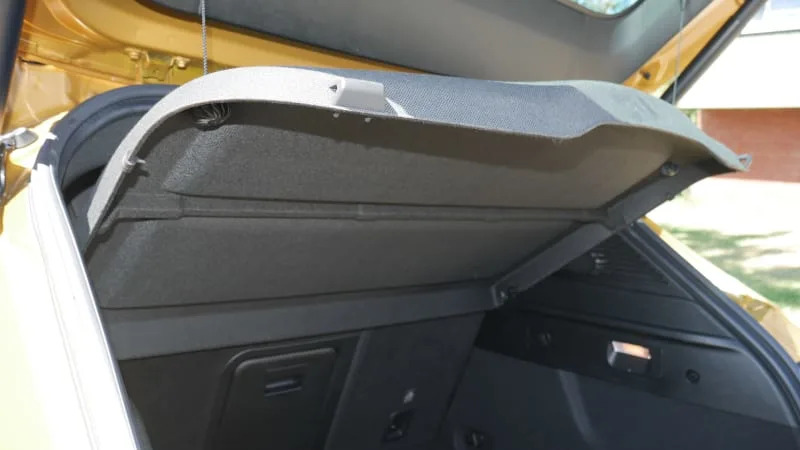
Speaking of that cover, here it is. Considering that there’s zero chance you’re storing this inside the vehicle to free up space for excess bags, I tested with and without the cover.
As with every luggage test, I use two midsize roller suitcases that would need to be checked in at the airport (26 inches long, 16 wide, 11 deep), two roll-aboard suitcases that just barely fit in the overhead (24L x 15W x 10D), and one smaller roll-aboard that fits easily (23L x 15W x 10D). I also include my wife’s fancy overnight bag just to spruce things up a bit (21L x 12W x 12D).
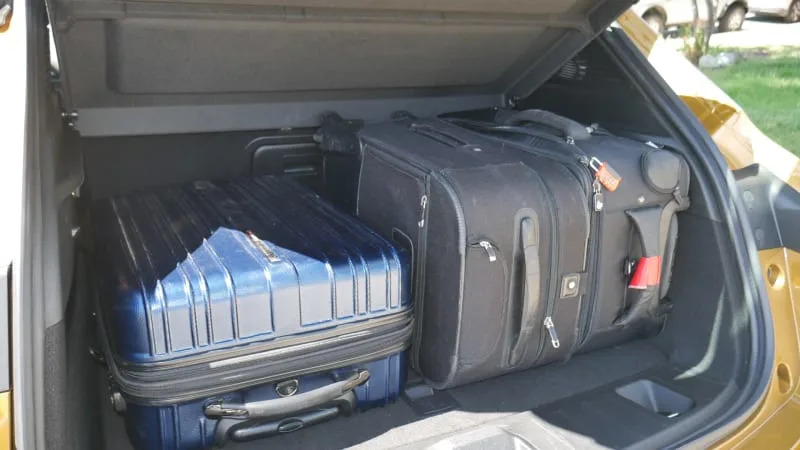
Mwa mwa. This is it: the two medium-sized bags and one of the big bags on its belly. There’s just not a lot of height to work with, including enough height to stack something atop the big blue bag. I suppose you could pop off the cover and try resting it atop everything, but I haven’t been doing that in these tests, so I didn’t here.
Alright, let’s chuck the cover.
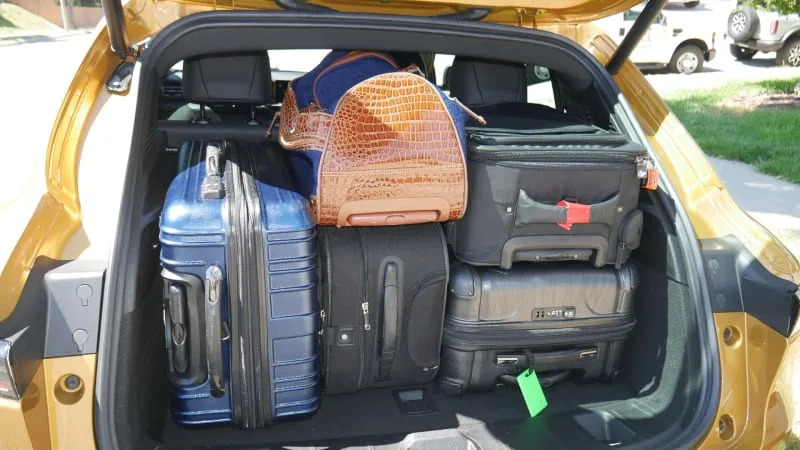
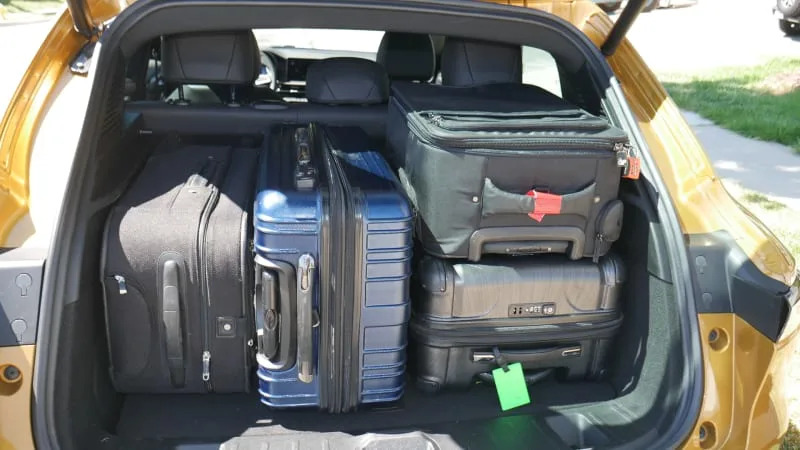
Upper left (or just upper for those on mobile), is literally the best I could do. The fancy bag isn’t squished and shouldn’t fly forward into the cabin (two criteria for an acceptable luggage test Tetris), but it does block rear visibility since it goes all the way to the roof. As such, that isn’t the official result.
Instead, it’s the second picture (above right/above bottom). That’s the four biggest bags with some space leftover for something smaller than the fancy bag (a soft-side duffle, for instance).
Quite simply, this is not a good result. Every compact SUV can fit all of these bags, while most can fit extra stuff like a cooler or Pack ‘n Play. This is also a worse result than all subcompact SUVs I’ve tested with the exception of the teeny-tiny Hyundai Venue. Perhaps not surprisingly, the Hornet’s mechanically related cousin, the Jeep Compass, could similarly hold only those four bags without loading all the way to the roof (the Compass luggage test has not yet been published).
Again, this result is for the plug-in-hybrid Hornet R/T. I am not sure how much of a difference the GT would make. If it does indeed come down to underfloor storage, this is what the R/T has to work with.
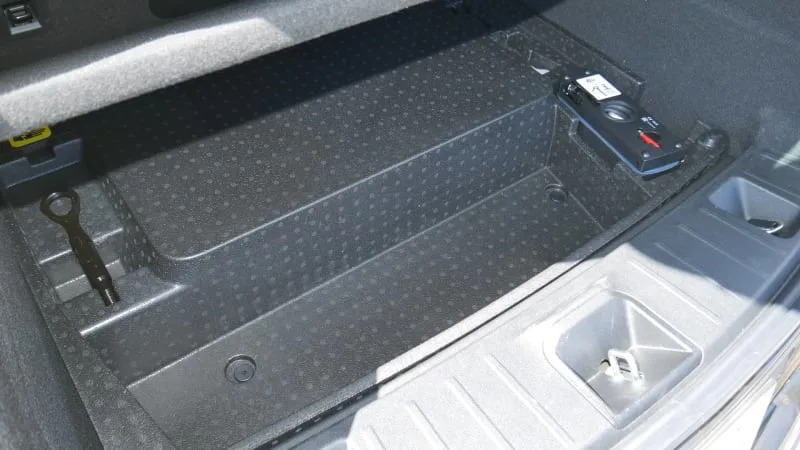
As you can see, there is some storage, which is certainly not useless. I want to talk about another element, though.
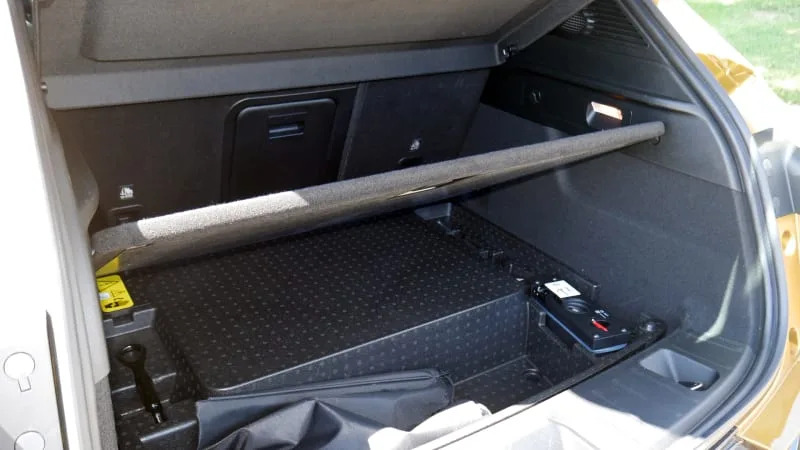
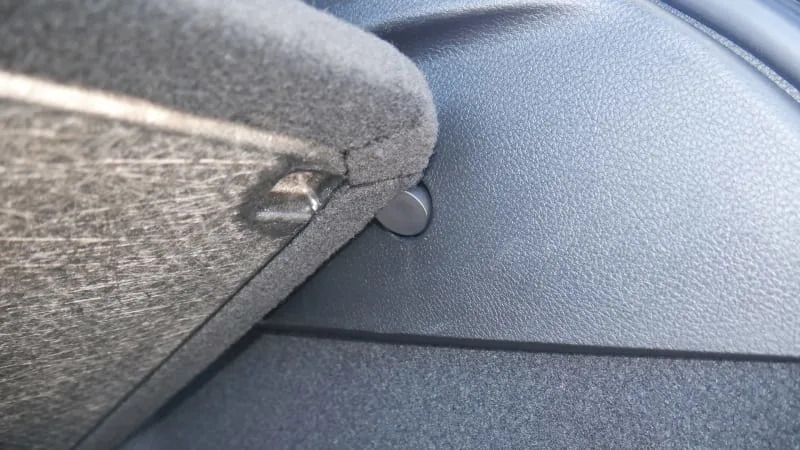
The floor itself is genius; I’ve never seen this feature before. See that little round nub in the photo above? When the floor passes over the angled portion, it depresses into the cargo wall like a button. When the floor passes it, the button pops back out allowing the floor to rest upon its flat upper portion. Just a little bit of push then allows the floor to go past the buttons and be lowered.
This is so clever and even better than the integrated hook Mercedes provides for its cargo floors. Given the amount of underfloor space here in the R/T, it’s not that useful, but the concept is nevertheless worthy of praise.



